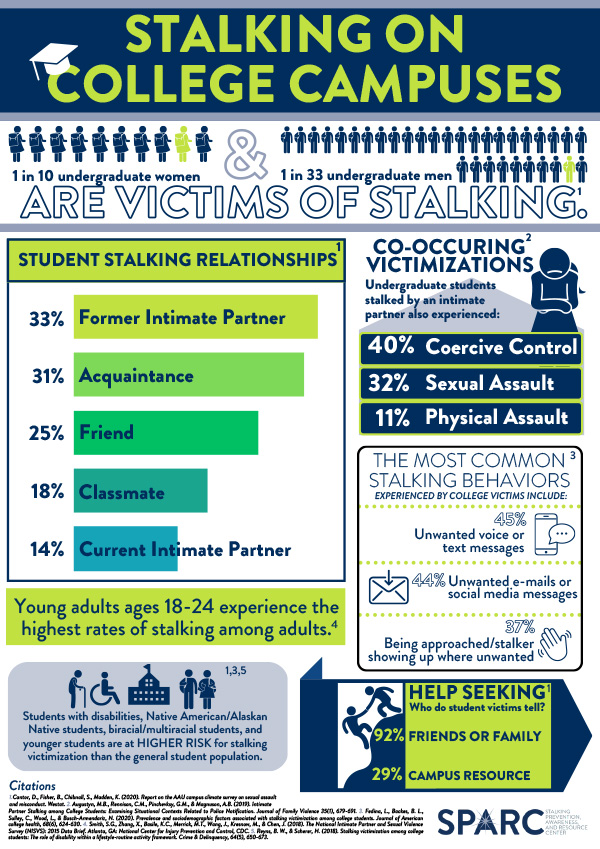This January marks the 20th annual National Stalking Awareness Month.
Thursday, Jan. 18 is the first Day of Action for Stalking Awareness. Join us by wearing anything with sparkles so we can #SparkleAgainstStalking
Also, check out this infographic which highlights facts about stalking on college campuses:
During the month, we will share information on stalking so we can: Know It. Name It. Stop it.
If you have any questions about stalking, need additional information about available resources or to make a stalking report, you may contact Leslie Johnson, interim compliance and prevention coordinator, at 217-786-2848 or leslie.johnson@llcc.edu.
